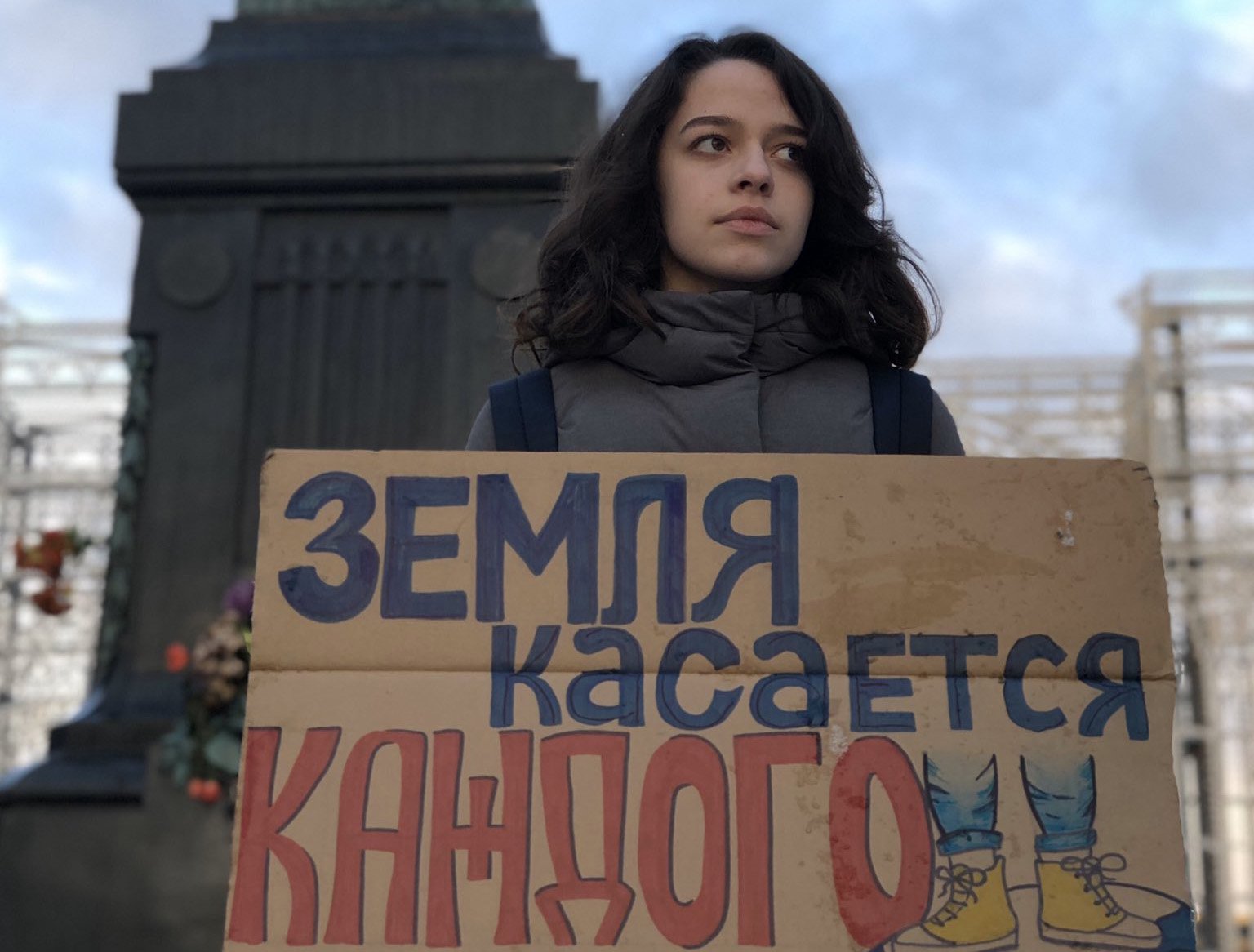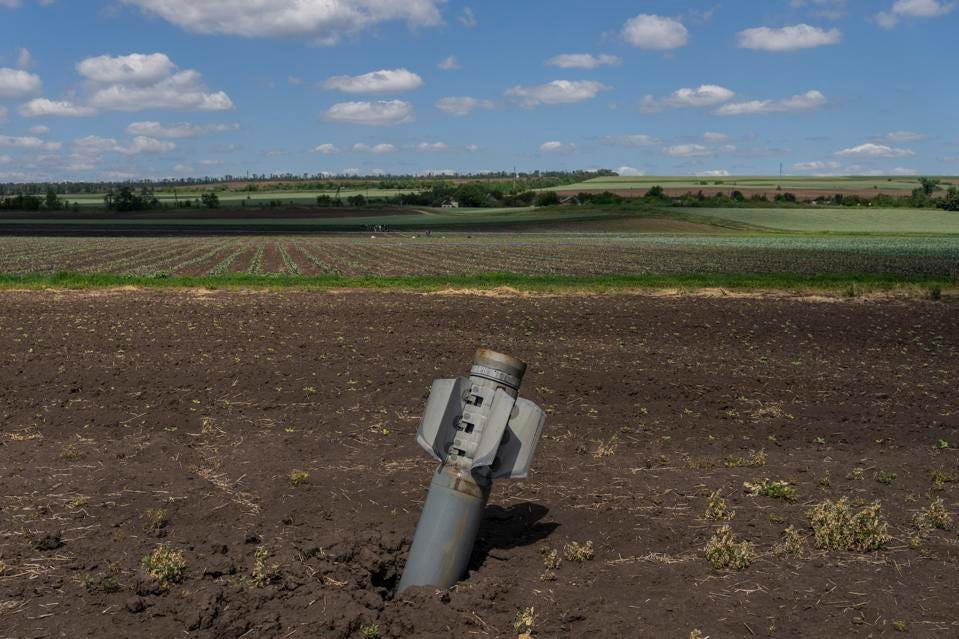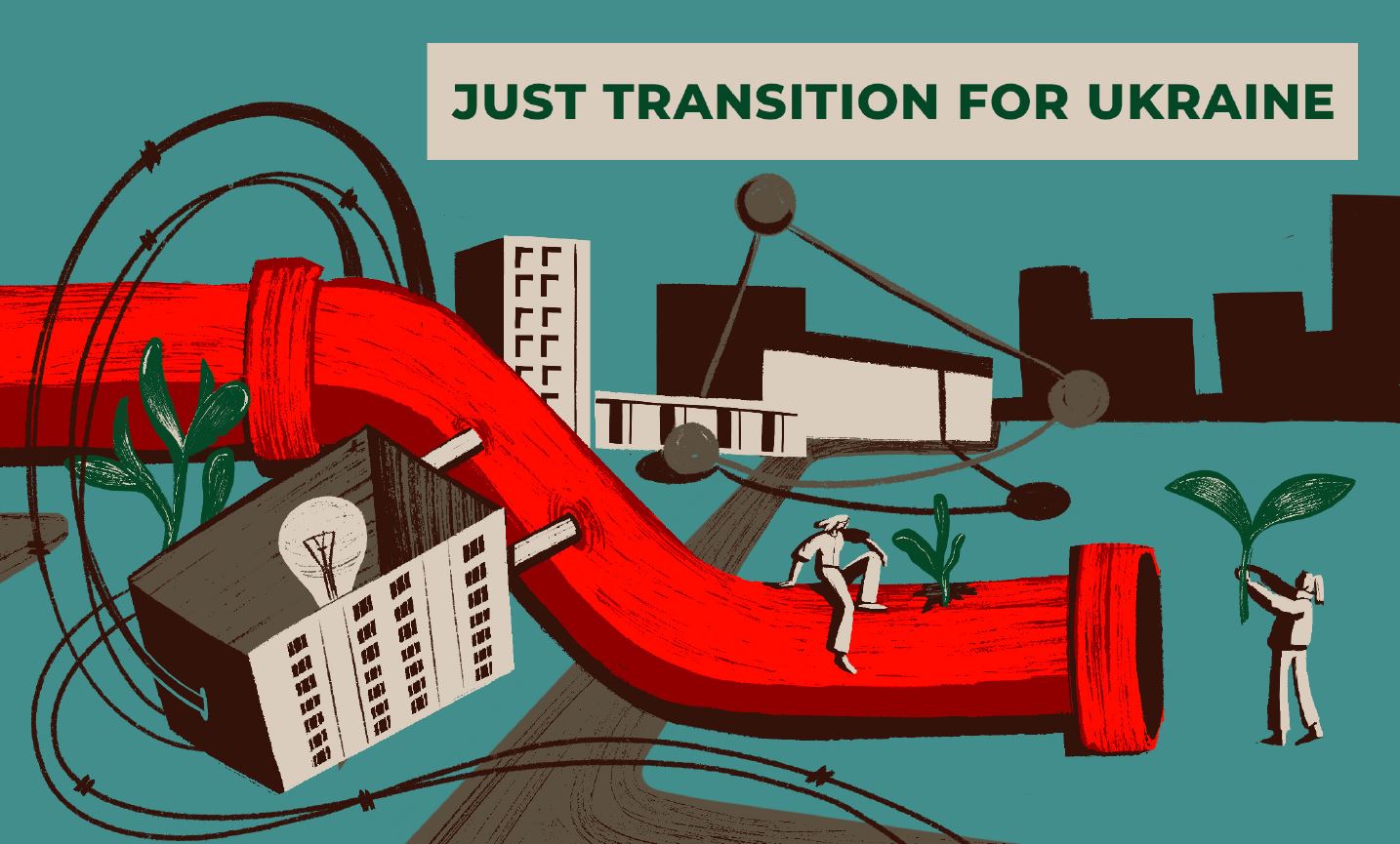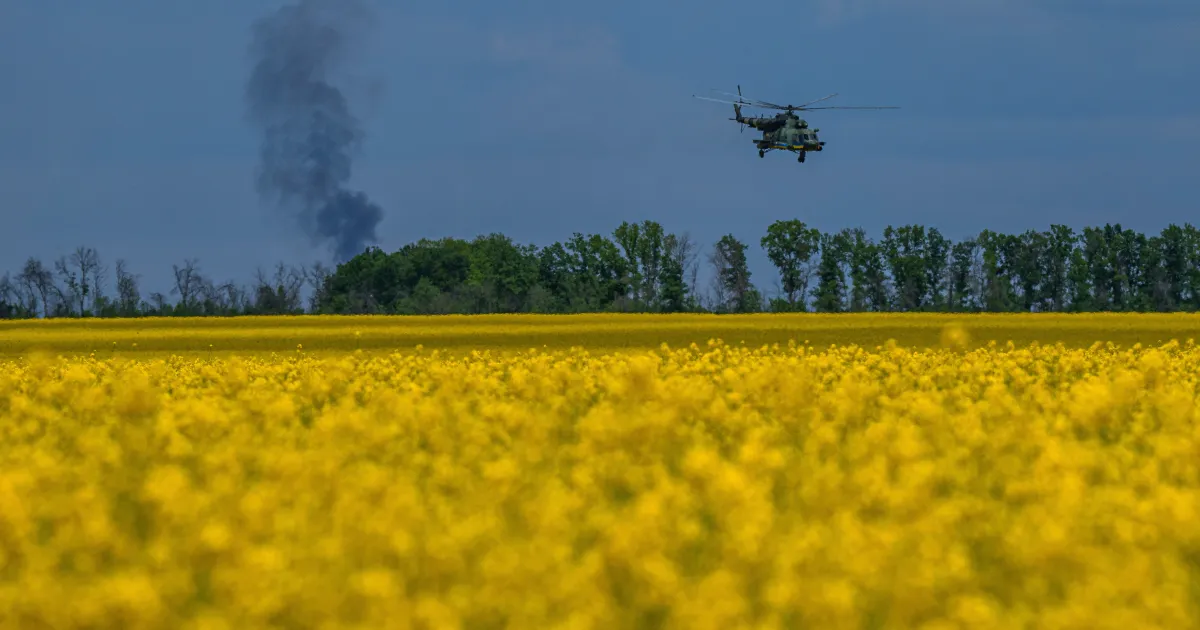During periods of socio-economic crisis and war, governments and the largest business lobbies often seek to relax environmental requirements in order to reduce business costs.
The belief that the surest way to overcome the crisis is to increase negative environmental consequences is a direct holdover of the extensive economic development that led humanity to our current ecological crisis at a planetary level. In addition to the looming food crisis and prolonged pandemic, the war in Ukraine has strengthened the influence of interest groups seeking to weaken environmental laws around the world. In Russia, this trend is particularly powerful, as the war and sanctions have intensified and accelerated a long-standing process of de-greening legislation and curtailing environmental control.
In spring 2022, Russian environmental associations have focused almost solely on fighting attempts to weaken environmental legislation and oversight. In May, Russian Socio-Ecological Union (RSEU), the country’s largest environmental association, published an overview of the trends degrading the environmental legal and regulatory framework. The report highlights the following trends:
- Reducing mandatory requirements for ensuring environmental safety,
- Complicating access and depriving citizens of the right to participate in issues related to nature and habitat protections,
- Reduction of state oversight over the activities of environmentally hazardous facilities,
- Reduction or cancellation of the legislative ban on economic development of protected areas and requirements for forest conservation, and
- Extension of deadlines for federal environmental projects and state programs beyond the responsibility of the current generation of officials.
Changes in legislation that worry environmental activists today span a wide range of issues, from weakening environmental impact assessments (EIA) and public participation in municipal development to allowing waste incineration and intensifying logging around settlements. In some instances coordinated opposition of environmental NGOs and the expert community resulted in preventing harmful legislative innovations, but responsible agencies are busy preparing new assaults on key aspects of environmental law and management.
Shrinking of the State Environmental Impact Assessment
On June 18, the «We Live Here» Movement hosted the Russian Environmental Safety 2022 conference for activists. Many grassroots groups from across Russia came together in 2019 to create this movement to defend the right for a clean environment as enshrined in the Russian Constitution. Many environmentalists spoke of the haste with which environmental regulations are being canceled or weakened by the government.
Aleksandr Fedorov, a member of the Russian Ministry of Natural Resources and Ecology’s Public Council dedicated his opening speech to highlighting weakening procedures for state environmental assessments (SEIAs or «expertizas»). He touched on other efforts to:
- Reduce the scope of specific SEIAs;
- Dilute the range of issues addressed by SEIAs;
- Decrease the importance of SEIAs in decision-making;
- Limit civil society participation during SEIAs and other assessments; and
- Depriving citizens of the right to organize public environmental impact studies.
Since the beginning of this century, the Russian government has repeatedly and with some success attempted to render the institution of SEIA and the process for conducting Environmental Impact Studies (OVOS in Russian) meaningless. In recent years, many types of undoubtedly dangerous projects have been exempted from SEIA procedures, for example hydroelectric power stations. In 2022 the process for abolishing administrative «barriers» has significantly broadened and accelerated.
For example, legislative bill #120074-8, sponsored by lawmaker Alexander Kogan, proposes to narrow the SEIA process for projects of any level of environmental risk to a simple compliance check for indicators of best available technologies included in reference books. Experts often express well-justified criticism with regard to the environmental friendliness of these books, which are often compiled by self-interested businesses. As a result, today’s mandatory requirements for evaluation and listing of potential consequences for public health and the environment would be eliminated. The bill also aims to deprive civil society groups of the right to conduct a parallel «public environmental review»1. Violating the basic constitutional rights of citizens increases corruption risks associated with the construction of environmentally risky facilities.
The Russian Ministry of Natural Resources and Ecology has proposed legislation entitled «On Amending the Federal Law ‘On Environmental Impact Assessments’ and Other Legislative Acts of the Russian Federation». The draft bill would eliminate the use of SEIAs to evaluate environmental disasters and emergency situations, a move which could result in an end to an entire chapter of the Federal Law «On Environmental Protection» (Chapter VIII «Zones of Environmental Disaster, Emergency Zones). A series of provisions in the Federal Law «On the Protection of the Public and Land from Natural and Man-made Emergencies» would also be struck down.
Another bill «On Amendments to the Russian Federation Urban Planning Code» (No. 02/04/05-22/00127256) proposes to leave the need for conducting SEIAs at the discretion of the «developer, technical customer, or other persons» on design documentation for any transport infrastructure facilities in Russia’s Exclusive Economic Zone, on the continental shelf of the Russian Federation, in inland waters, in Russian territorial seas, within the boundaries of protected areas, the Baikal natural territory, and in Russia’s Arctic zone, replacing them with expert support.
According to Fedorov, the number of proposed amendments undermines the foundations of Russian laws on the rights of citizens to a healthy environment and protection of their health and life.
Legislating with a rubber-stamp
Since 24 February 2022, several legal derogations have already been adopted.
The Russian Ministry of Construction, Housing and Utilities issued Order No. 46 (March 11, 2022), allowing the State Office for Examination of Construction Projects («Glavgosexpertiza») to abolish the requirement to conduct «State construction project assessments», in order to receive permission for «preparatory construction works as well as introducing a moratorium on issuing negative conclusions in those assessments conducted on project documentation. Such state assessments are the only remaining means to control the quality of projects that are exempt from the SEIA.
Federal Law 58 „On Amendments to Certain Legislative Acts of the Russian Federation“ was enacted on 14 March. This law seeks to ease the way for businesses affected by sanctions and suggests that master plans and municipal development projects can now be approved without public hearings or public discussions. Moscow and the Moscow region have already taken advantage of the new rule in order to limit public participation in the discussion of development plans.

Civil defense in action
Virtually every attempt to weaken regulations provokes public opposition, although the opportunities for protest are significantly limited in wartime. Nevertheless, there have already been cases where the authorities’ appetite for weakening laws has been moderated by civil society’s effective actions.
When first drafted, Federal Law No. 124 (enacted 1 May 2022) was aimed at simplifying the development of priority infrastructure projects. An early draft abolished State Environmental Impact assessments for construction in federal protected areas.
— If the law were adopted in this form, it would allow removal of land from regional protected areas for any type of infrastructure use except residential construction, — Mikhail Kreindlin, a representative of Greenpeace Russia, commented during an interview with Vedomosti. — It could be a ski resort, tourism or sports development, mining enterprise, oil and gas infrastructure, or a road,» the environmentalist continued. «It is currently forbidden to build any of these objects within a protected area.
Thanks to wide public outcry and active engagement by the Coordinating Council for Environmental Welfare under the Civic Chamber of the Russian Federation, these provisions were excluded from the final version of the law. However, as approved, the law now permits construction of oil and gas pipelines and roads within federal protected areas without an SEIA. The process for cultural and archaeological evaluations was also simplified, essentially eliminating the requirement to identify new archaeological monuments on the territory of planned infrastructure projects.
Waste not, want not
Arkhangelsk activist Anastasiya Kochneva, member of the 42 Environmental Movement coordinating council, spoke to We Live Here conference participants about local waste management issues and possible solutions. In the end, she took time to explain why waste incineration is a bad idea. Although that seems to be a generally accepted concept, the State Duma has brought that assumption into question.
Duma Representative Alexander Kogan, who also serves as the «environmental» program chair for the All-Russia People’s Front political coalition, an offshoot of the United Russia political party, sponsored Federal Bill No. 116676-8. This bill proposes to define as «recycling» any conversion of municipal solid waste into fuel. If adopted, waste management operations could simply burn waste (releasing dioxins and other toxic substances, as well as carbon dioxide) and collect payments for these services by the very population the pollutants are harming. This is a continuation of decades of attempts by self-interested businesses and officials to legalize residential waste incineration. If they achieve their goal, it is likely to bring the entire multi-stream waste collection and recycling industry to an end.
In wartime, other paradoxical manifestations of lawmaking took wing, some proposed even before 24 February. On 24 May 2022, Bill No. 79874-8 «On livestock by-products…» was adopted in its first reading (there are customarily three readings). The bill, now awaiting its second reading, essentially offers agricultural enterprises «indulgences» for polluting fields with fresh manure, a direct threat to human health and environmental quality. And again, the Coordinating Council for Ecological Welfare at the Civic Chamber of the Russian Federation, the All-Russian People’s Front and the Russian «Greens» Ecological Party published a joint open letter describing the environmental consequences of the bill’s adoption. Dozens of environmental organizations are calling for changes or withdrawal of the bill from consideration.
Duma Bill No. 131312-8 «On Changes to… Federal Law ‘On Environmental Impact Assessments’» seeks to change the law as it relates to landfill reclamation and prevent «redundant» SEIAs for waste management complexes. The bill envisages «eliminating the requirement to conduct discussions with citizens and public associations … of materials for assessing the impact of an object of State Environmental Impact Assessments, as well as providing materials for such discussions as part of the materials subject to SEIA.»
Although waste management practices have been problematic for decades in Russia, especially with the rise of single-use packaging, it is only in the last few years that it has become a hot-button issue. Many effective protest movements have recently sprung up across Russia precisely because government authorities (illegally) neglected to solicit citizen input regarding waste management. If the bill is passed, it will add fuel to the fire.
The government has deliberately limited law enforcement activities to comfort businesses during war-time and this leads to an increase in violations. At the Russian Environmental Safety 2022 conference, Alexander Kolotov, a member of the Public Council under the Federal Water Resources Agency, spoke about recent developments in placer gold mining in Russia. «The extraction of gold directly in riverbeds produces only about a quarter of Russia’s annual production, but is responsible for the destruction of river valleys and the pollution of many thousands of kilometers of river channels,» he stressed.
According to Kolotov, a long-time leader of public monitoring of placer gold mining, during today’s war these negative impacts not only did not decrease, but even increased. In just eight Russian regions, 85 individual pollution sites were visible from space, spreading over 3,000 kilometers of watercourses from mid-May to mid-June, the first month of monitoring placer mining operations in 2022. In the future, the situation will only worsen as government agencies are under orders to «reduce pressure» on all economic activity.
In early March, the Russian government decreed (No. 336 «On the features of the organization and implementation of state control (supervision), municipal control») that in 2022 planned oversight activities and scheduled government inspections will not occur, and unscheduled monitoring will only be carried out in «exceptional circumstances», for example, when business activity poses a threat to people’s lives or national security.
Today, activists’ letters to oversight agencies receive non-committal replies, whereas in past years state inspectors conducted site visits and often punished violators. Kolotov proposed to cancel and rewrite a number of regulations in order to avoid record-setting damage to nature and the local residents.
In order to meaningfully rewrite laws, the State Duma needs to have reliable information about the effectiveness of law enforcement, and yet that is not in the government’s interest. So on 15 June, when Minister of Natural Resources and Ecology Alexander Kozlov gave testimony to the State Duma on the efficient use of mineral resources, representatives inquired what he was specifically doing to revoke licenses from placer gold mining enterprises that harm nature.
Kozlov cited an example in Kamchatka Krai: «We worked with local authorities and companies. Their licenses were revoked, and salmon spawning rivers received protected status to be sure no one can encroach on these places. Legally, everything can already be monitored and regulated. If desired.»
Our review of that case showed that the minister demonstrated wishful thinking: despite the stormy promises that followed public protests against the destruction of the rivers two years earlier, the promised river protected areas have not been created in Kamchatka, and license-holding mining companies await an opportune moment to start mining in salmon river floodplains. Thus, adoption of inadequate and weak legislation and amendments by legislators is accompanied by frequent disinformation that «everything is under control» from ministries and agencies.

Diagnosis: worse, not new
The bills listed above are just the tip of the iceberg. According to the Zeleny Zmiy, a Telegram channel specializing in insider information on environmental governance, the Ministry of Natural Resources (and Ecology) developed a plan back in March to accelerate «anti-crisis» amendments to federal laws: new rights to use subsoil resources without a competitive bidding process, facilitate land allocation for recreational activities in protected areas, and other «incentives for economic development.» At the same time, the Ministry also delayed development of «commercially burdensome» legislatives bills toughening Extended Producer Responsibility (EPR) for the entire life cycle of manufactured goods, creation of reclamation funds for subsoil users, and equipping factories with automatic control systems to be compliant with emissions quotas.
Very few of the derogation acts are actually directly related to an inability to comply with environmental regulations related to the war, for example, due to international sanctions. This likely includes Russian governmental decree No. 855 (12 May 2022), which allows production of «Ecological Class 0» cars. Compared to the current Euro 5 standard, «Class 0» allows gasoline-fueled cars to increase emissions of toxic hydrocarbons, nitrogen oxides, and carbon monoxide almost threefold. Given the enormous share of transport emissions in urban pollution, widespread production of such vehicles could end plans for implementation of Russia’s National Clean Air project and have an extremely negative impact on public health.
Many of these attempts to undermine environmental legislation have a long backstory rooted in corruption, and the war is just a pretext to pass off these bills as «very pressing». Each industry has its own interest groups seeking to snatch natural resources under the pretext of overcoming «temporary difficulties.»
Forestry is no exception. Under the guise of protection from the threat of breakover fires, Federal Bill «On Amendments to the Forest Code to Prevent the Spread of Forest Fires» would allow clearcutting timber in protected forests and protected forest areas adjacent to settlements and economic facilities.
UWEC Work Group recently wrote about an initiative by the Russian Ministry of Defense to provide for the construction of wooden fortifications with permission to conduct unlimited logging in any location. According to RSEU experts, past experience and the current extent of criminality in the forestry industry increases the likelihood of a loss of control during planning and logging, with the potential to provoke massive forestry violations and provide convenient conditions for developing land around population centers.
There is every reason to expect that as temporary challenges deepen, government authorities across Russia will not only take broad advantage of these varied new gaps in federal legislation, but will work creatively to extend derogation of environmental regulations and procedures to the regional level.
Environmentalism for the future
Since the war began, national projects and state programs have frequently been postponed.
The main goals of the Clean Air federal project have been postponed. Implementation of key reform indicators in waste management is also being steadily delayed until a later date. Achievement indicators for the processing of municipal solid waste are set for 2030, while the «100% extended responsibility» program for container and packaging manufacturers has been postponed year after year. Despite a reduction plan, the number of landfills only continues to grow. Various permits for discharges, emissions, and other negative environmental impacts that previously required periodic re-approval are now automatically extended.
Meanwhile, Russia has a wealth of old Soviet industrial infrastructure breathing its last and requiring vigilant oversight. For these, large investments are needed in order to avoid accidents and disasters. One interviewed expert who wished to remain anonymous suggested that the recent series of accidents, explosions, and fires that have become more frequent across Russia since March 2022 is most likely due to weakening state control and resource users’ failure to properly care for resources rather than being caused by the mythical «Ukrainian saboteurs» currently being blamed for these troubles.
It’s all fine, just fine …
Public statements by significant government officials about «preventing weakening of environmental measures» and condemning the creeping de-environmentalization of Russian reality are particularly tragicomic in this context.
Chair of the Ecology and Natural Resources Commission of the State Council of Russia Gleb Nikitin commented to Rossiyskaya Gazeta, «In no case should loosened industry regulations worsen the environmental well-being of people.»
Minister Kozlov concluded an extended interview with Kommersant newspaper by saying, «Environmental requirements for users of natural resources remain unchanged! No one is going to turn a blind eye to violations of environmental law and regulation! On the contrary, these new economic conditions will help to peel back the „green camouflage“ for many and enable them to show their true attitude to the environment.»
On 17 June, at the St. Petersburg International Economic Forum on 17 June, President Putin stated, «…we will develop clean technologies in order to achieve our goals to environmentally modernize enterprises and reduce harmful atmospheric emissions, especially in large industrial centers. We will also continue to work within a framework of closed-loop economic projects, „green“ projects, and climate protection…»
A little later, he expressed himself more realistically, saying «Listen, in today’s conditions each agency, each country overall is considering how to avoid certain costs. It’s absolutely natural. You have already mentioned several countries, but this all applies everywhere without exception.»
In general, Russia’s top leadership is aware of the descent into the proverbial abyss, but they continue to pretend that it’s all going according to plan.
1 Russia’s Law “On State EIA” grants NGOs the right to review Environmental Impact Studies and other materials submitted by project proponents to the State EIA. The State EIA Commission must take note of the verdict of the “public EIA” and respond to issues raised by the public in its own final State EIA Decision. Continue reading








Comments on “Environmental lawlessness during wartime”